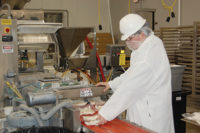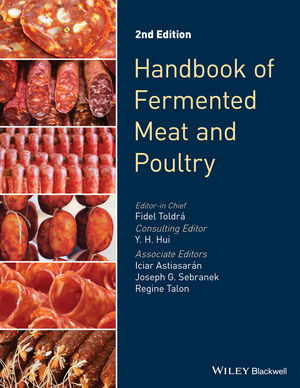Higher Education
Seeking beef breakthroughs






High quality beef is a noble pursuit that West Texas A&M University does not take lightly. A vibrant meat science program at WTAMU is actively pursuing higher quality beef through two active research projects and relentless training of the next generation of meat scientists and producers.
In the small town of 13,000 people on the edge of the Palo Duro Canyon, Dr. Ty Lawrence, associate professor of animal science and director of the meat science program, challenges students to “think outside the box” when it comes to new ways to improve the quality of beef production.
In a recently completed thesis project, graduate student Logan Holmes turned waste fat into taste fat. His research demonstrated methodology to remove subcutaneous fat (backfat) from striploins, fully cooking that fat and removing the collagen matrix, then cooling and injecting that fat back into the subprimal cuts.
The randomized, complete block designed experiment also included a non-injected control from each animal. The strip loins were cut into one-inch thick steaks for proximate analysis, Warner-Bratzler Shear Force analysis, and an in-home consumer sensory analysis.
The fat injected steaks visually improved from Select to Prime quality, were more tender, more flavorful, and juicier than non-injected steaks – consumers also preferred the fat-injected steaks 2.2:1 over non-injected steaks.
A second project has taken a much more high-tech route to providing high quality beef. Lawrence and his colleagues (including ViaGen, Dr. Gregg Veneklasen, Mr. Jason Abraham, Dr. Dean Hawkins, Dr. David Lust, and Dr. John Richeson) have cloned beef carcasses that graded Prime and yield grade 1. The U.S. beef population is represented by approximately three percent Prime carcasses and about 12 percent yield grade 1 carcasses.
Because muscle and fat are antagonists, those traits occur together very rarely — at the rate of about 0.03 percent, Lawrence said.
The unique team of university and private researchers are working to develop cattle that will naturally produce more taste fat with less waste fat. To date, the group has successfully cloned two cell lines with more in progress.
“Both projects have received significant interest from the industry,” Lawrence said. “The most important part of both projects is the hands-on student involvement in the discovery process.”
Students at WTAMU benefit from research projects in and out of the classroom. The “discovery process” paired with relevant instruction proves to be a strong model for learning in the meat science program as students like Holmes are employed immediately after graduation.
Holmes is currently a Quality Assurance Supervisor for Smithfield in Virginia.
For more information about the WTAMU animal science or meat science programs, visit the website or call 806-651-2550.
Looking for a reprint of this article?
From high-res PDFs to custom plaques, order your copy today!










